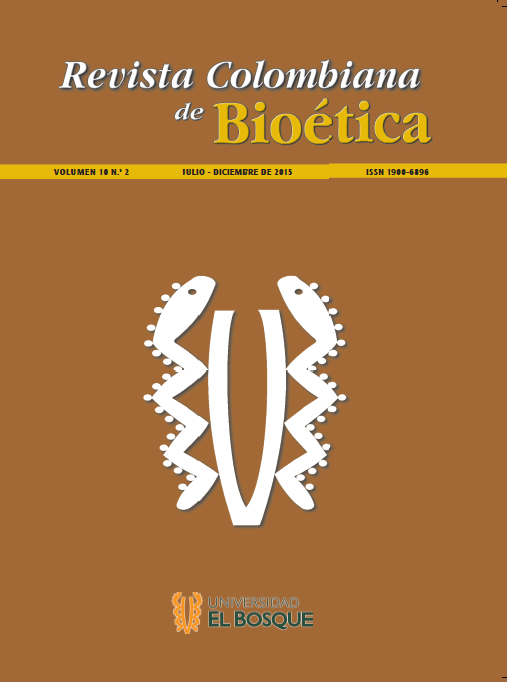Socially: from Subjective Reason to the Negative Dialectic and its Critical Reason
DOI:
https://doi.org/10.18270/rcb.v10i2.1771Keywords:
Bio-politics, humanization of the social, subjective reasoning, critical reasoning, knowledge, social integrationAbstract
The aim of this paper is to reflect on the role of the subjective reason as a producer of knowledge, and the techniques that govern nature and society. The consequence of this process is the creation of forms of domination. The rationalization implies that society is governed naturally, and dominant-submissive relationship is established naturally. This paper proposes that the negative dialectic is a way to break from this divergence of reason, the initial purpose of which was to humanize society, but which ultimately ge-nerated the opposite process.
Downloads
References
2. BARAHONA, Esther. «Categorías y modelos en la Dialéctica negativa de Th. W. Adorno: crítica al pensamiento idéntico». En Logos. Anales del Se-minario de Metafísica, 2006. Vol. 39, p. 205. [PDF]. [Fecha de consulta 12 de abril de 2015]. Disponible en http://revistas.ucm.es/index.php/ASEM/article/view/ASEM06061 10203A/15745
3. FOUCAULT, Michel. Seguridad, territorio, pobla-ción. Buenos Aires: FCE, 2006.
4. HONNETH, Axel. Critica del Agravio moral. Buenos Aires: FCE, 2009.
5. HORKHEIMER, Max. Critica de la Razón Instru-mental. Madrid: Trotta, 2002.
6. ________. Teoría Crítica. Buenos Aires: Amorror-tu, 2008.
7. MARCUSE, Herbert. Razón y Revolución. Barcelona: Atalaya, 1994.
Downloads
Published
How to Cite
Issue
Section
License

Esta obra está bajo licencia internacional Creative Commons Reconocimiento-NoComercial-SinObrasDerivadas 4.0.















